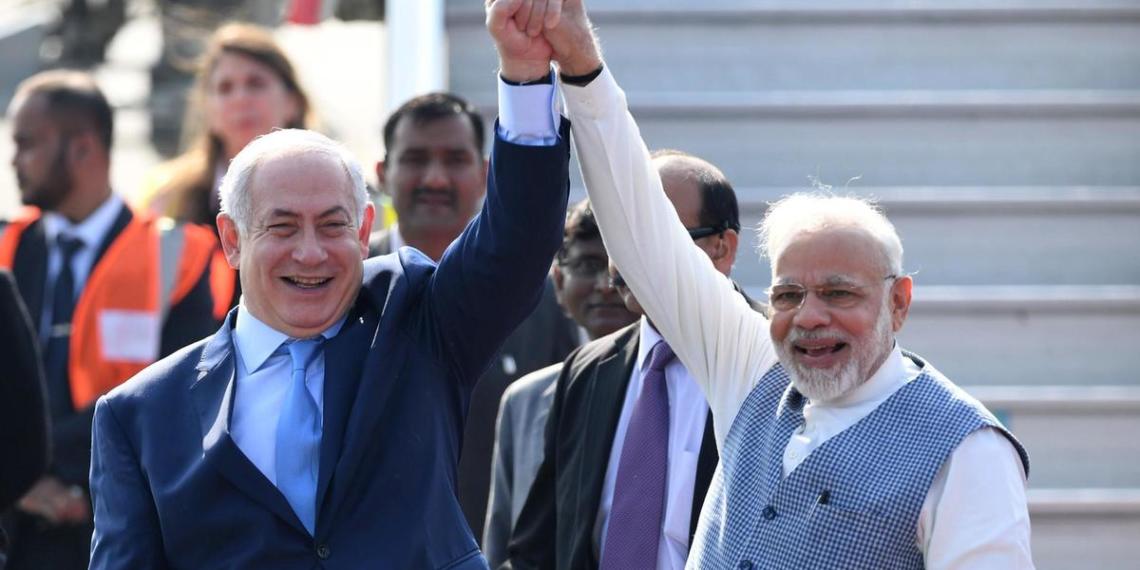India has finally discarded the baggage of Nehruvian Socialism in foreign policy towards Israel. In a historic move, India voted against the Palestinian human rights organization named ‘Shahed’ to deny the body observer status at UN’s Economic and Social Council (ECOSOC). “This is a good sign… India was the first country to support us amongst the Asia group, so we are very happy,” said Maya Kadosh, deputy chief of mission at the Israel embassy in India.
For decades India supported the two-nation theory and stood up for the cause of independent Palestine. However, the Modi government has changed its stance. The country voted in favor of Israel along with the US, France, Germany, Japan, UK, South Korea and Canada while China, Russia, Saudi Arabia, Pakistan supported the Palestinian cause. The proposal to grant observer status to ‘Shahed’ was rejected by 28-14 vote.
Thank you #India for standing with @IsraelinUN and rejecting the request of terrorist organization “Shahed” to obtain the status of an observer in #UN. Together we will continue to act against terrorist organizations that intend to harm. pic.twitter.com/erHTfuY1A1
— Maya Kadosh (@MayaKadosh) June 11, 2019
“Thank you India for standing with @IsraelinUN and rejecting the request of terrorist organization “Shahed” to obtain the status of an observer in #UN. Together we will continue to act against terrorist organizations that intend to harm,” tweeted Kadosh.
In a statement released on June 6, Israel foreign ministry called ‘Shahed’ a terrorist organization. “Shahed is a Palestinian organization based in Lebanon that claims to deal with human rights and humanitarian issues, but in practice is an organization that Israel has declared a terrorist organization and in fact operates as the Lebanese arm of Hamas,” read the statement by Israeli foreign ministry.
For decades, India has shown cold-hearted response to Israel’s enthusiasm for having close ties with the country. Israel has considered India as ‘natural ally’ given the similarities in history, culture, and enemies but the previous Congress governments were not very keen on reciprocating Israel’s friendly gestures. The baggage of secularism and fear of being sidelined by the Islamic world was the reason behind Congress’ halfhearted response. However, in the last five years, the Modi government has been able to improve relations with Israel as well as with the Islamic world simultaneously.
In July 2017, PM Modi essentially ‘dehyphenated’ India’s relationship with Israel-Palestine and became the first ever Indian Prime Minister to visit Israel. The visit was a notable exception from historical ‘balancing act’ of a mandatory visit to Palestine whenever an Indian official visited Israel. In January 2018, Benjamin Netanyahu became the second prime minister on an official visit to India since Ariel Sharon’s historic tour to the country in 2003.
The interfaith relation between Hinduism and Judaism is the backbone of Indo-Israeli ties. “Jews have lived in India for over 2,000 years and have never been discriminated against. This is something unparalleled in human history,” said Rabbi Metzger. Thousands of Jews visit Himalayan states every year as tourists.
The deeper defense, security, economic, science and technology and cultural ties with Israel would be mutually beneficial. Thousands of Jews live in various cities of the west coast of India and the Israeli population has the highest approval for India. Israel remains one of the most trusted countries among Indian populace but the previous Congress governments, being true to their elitist nature, remained biased towards Israel.







